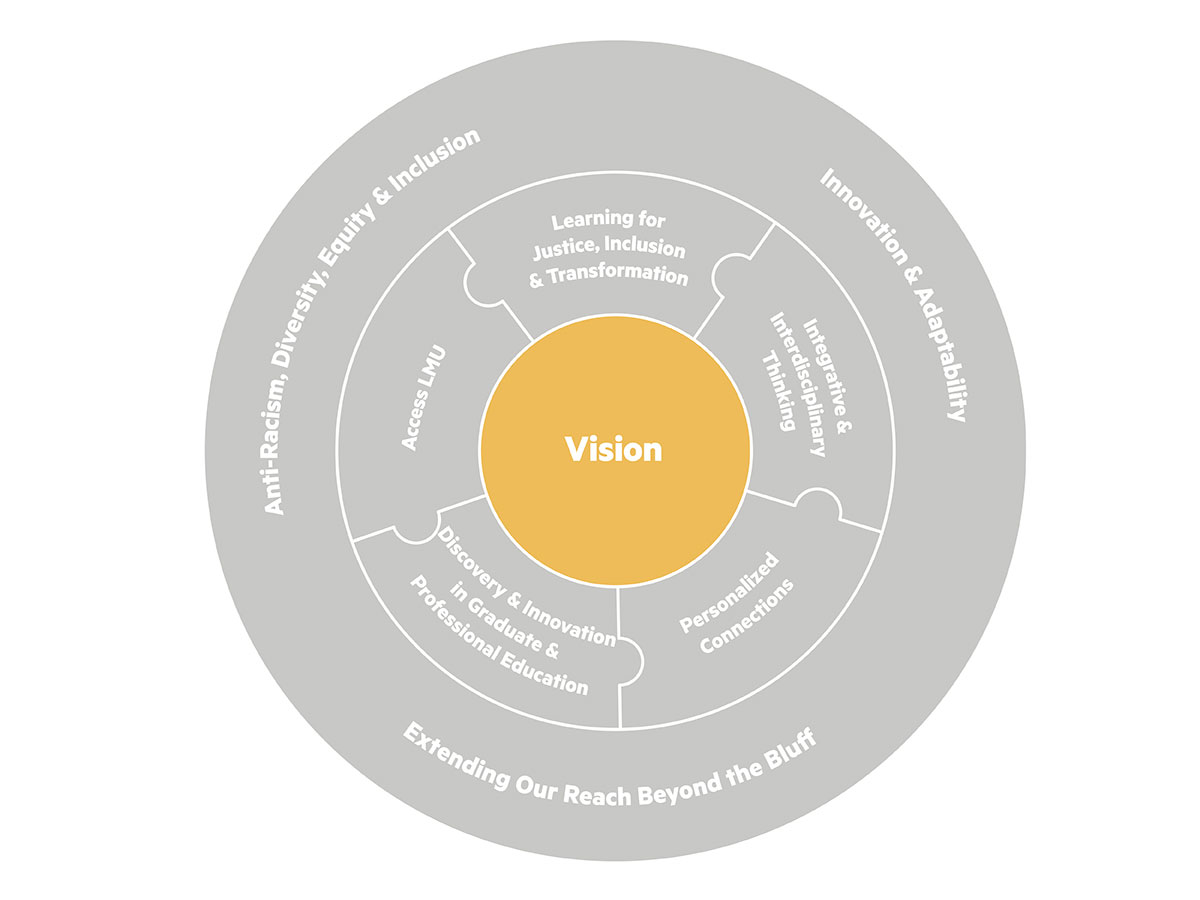The strategic vision describes what LMU will look like in the future as a consequence of the plan's success. It constitutes the primary focus of LMU's strategic efforts and articulates the common purpose that the university asks all members of the community to commit to advancing. The vision speaks to the future LMU aims to realize over the duration of the plan:
In fulfillment of its mission, LMU will form a new generation of ethical leaders who will identify, analyze, and respond to the most challenging problems facing our rapidly changing global society.

This statement distills the three most compelling elements of the university's overall efforts: who LMU serves, what LMU does, and why:
Who LMU serves: "a new generation of ethical leaders."
LMU's most fundamental purpose is found in the students the university helps to form and the graduates the university helps to send out into the world. LMU's students are not like those of all other universities: rather, through their distinctive learning experiences here, they become part of a community of persons for and with others. LMU's graduates become discerning, courageous persons who pursue lives of meaning and purpose, who value diversity, inclusion, and right relationship, and who possess exceptional capacity and commitment to be agents of reconciliation and justice.
What LMU does: "form [leaders] ... who will identify, analyze, and respond to ..."
LMU prepares students to be contemplatives in action, able to understand and benefit a world in need. Like all universities, LMU cultivates knowledge and skills; as a liberal arts university, LMU orients students to multiple ways of understanding and instills in them a reverence for questions of ultimate meaning and purpose; as a mission-defined university, LMU does so intentionally, with a distinctive commitment to fostering virtues of intellect, character, and spirit, and to empowering the creative potentialities that emerge when contemplation and action mutually inform one another. Influenced by the concept of praxis in Catholic social teaching, LMU prepares students to assess their reality and to propose and enact transformational solutions to pressing problems.
Why LMU does what it does: "[to] respond to the most challenging problems facing our rapidly changing global society."
The world is changing rapidly, and often in directions that do not produce justice and help attain the common good. Addressing these problems will require wisdom, creativity, and commitment. Because of LMU's mission, traditions, and community members, LMU possesses a rare potential to educate students to become responsive to the scale and velocity of the practical challenges and systemic injustices confronting the contemporary world. LMU graduates will see these challenges as invitations to reflect, inquire, and act.